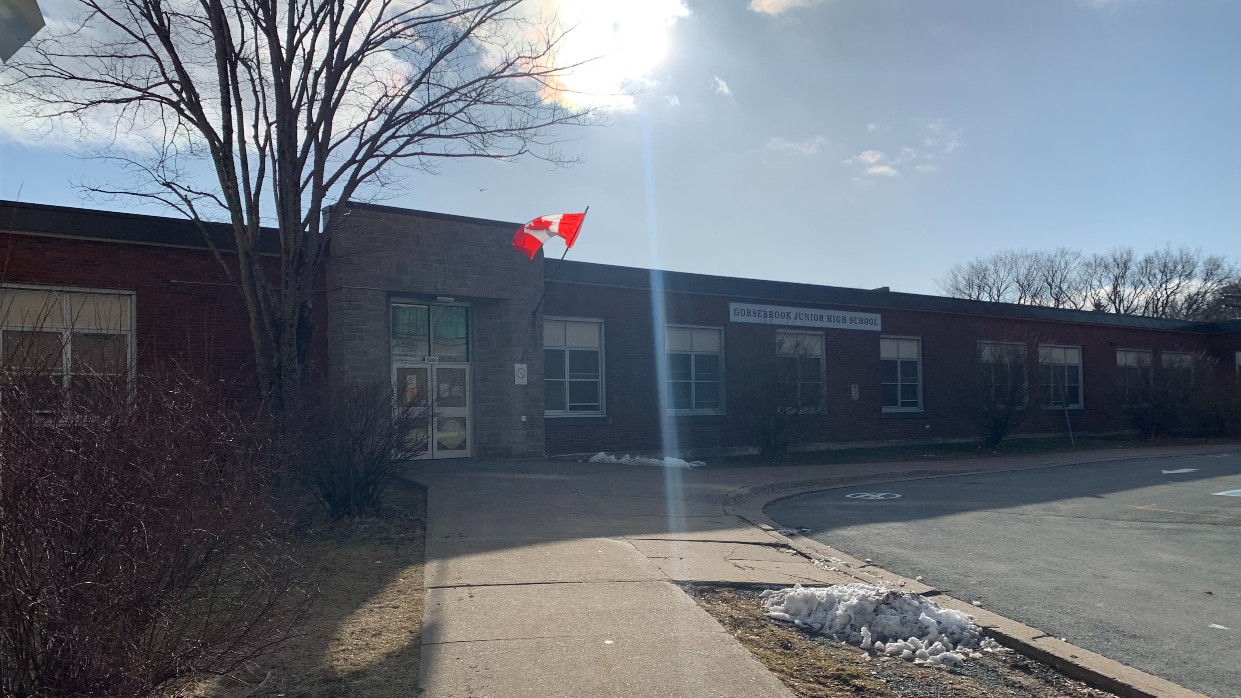Halifax teachers, parents weigh in on virtual classrooms
Students across province are learning online during their first week back from winter break

caption
Nova Scotia schools, including Gorsebrook Junior High, are empty this week as students and teachers continue online learning during the first week back from winter break.As Nova Scotia schools teach online classes this week, parents and teachers have different opinions on whether or not it is safe to bring students back in person on Monday.
Students and teachers from elementary through high school are at home this week to help stem the surge in COVID-19 cases and improve precautions against transmission of the disease, before returning to the classroom on Jan. 17.
The provincial government announced Wednesday that 25,000 rapid tests will be distributed to schools across Nova Scotia to help with the return to in person classes.
Abigail Tramble is a teacher at Rockingham Elementary School in Halifax. She said online learning is challenging for everybody, but given the current state of the virus in the province, it makes sense for the first week to take place virtually.
“They’re saying that next week, they will have more rapid tests for the students. So we can be safer, or at least take as many precautions as we can, before we go to school,” said Tramble.
One teacher said that lack of healthy staff is one of the reasons schools were online this week.
“Last week, I heard 20 teachers from one particular school called in sick and said, ‘we’re not coming’. So who’s going to run the classroom? You’ve got a manpower issue there,” said Marcy Burke, a teacher at Gorsebrook Junior High School in Halifax.
Deborah McNamara has a child in high school. She is also a member of Nova Scotia Parents for Public Education, a group that advocates for the promotion of the principles of public education.
“It’s very hard for me to picture the idea of my child going into a building of 1,700 people, and me feeling that there’s any way to make that safe if we’re not reducing classroom sizes,” said McNamara.
McNamara said it’s right to keep students at home while cases continue to increase. She recognizes the impact that online school can have on children’s mental health, but also pointed out the anxiety that being in large groups can create for students.
“Going into a room full of multiple people right now goes against everything else we’re telling them to do. So it’s very hard to make, especially a teenager, feel comfortable with the idea that you can’t have a friend over but you can go into this room and it’s fine,” said McNamara.
Halifax parent Kelly Browell is glad that school was able to be online for the first week of the New Year, as it provides some structure for her young children’s days, but does not want to see an extended period of online learning.
“I found April last year, after three weeks, I was exhausted, like I was kind of running on adrenaline,” said Browell, who has two kids, ages nine and six, learning from home, as well as a baby.
“It has a really negative impact on my mental health, because I have an infant, and so I can’t rest. I don’t get any rest or self care.”
Burke and Tramble are both optimistic that students and teachers will be able to return to in person teaching on Monday. They said the benefits of being in person make a huge difference in their students’ learning.
Burke said that when her students had to go online for the second time last year, participation and attendance was up to 90 per cent, compared to 20 per cent in March 2020, when classes were first moved to online.
While she is glad that her students have been able to adjust to online learning, she said knows that they are better off in the classroom, and hopes that they will be able to finish the year in person.
“Most kids should be in the classroom,” said Burke. “We can’t stay cooped up forever, it’s not good for them.”
McNamara agrees that in person classes are the best thing for students’ learning, but wants to keep the focus on what is best for their health and safety.
“I think that issue has divided very much into a pro-online or anti-online argument. And I don’t really feel like that should be our focus, we need to find a way to open schools, or learning, for children that’s consistent and safe,” said McNamara.

